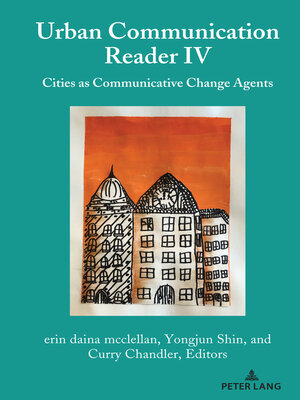Urban Communication Reader IV
ebook ∣ Cities as Communicative Change Agents · Urban Communication
By Gary Gumpert

Sign up to save your library
With an OverDrive account, you can save your favorite libraries for at-a-glance information about availability. Find out more about OverDrive accounts.
Find this title in Libby, the library reading app by OverDrive.



Search for a digital library with this title
Title found at these libraries:
| Library Name | Distance |
|---|---|
| Loading... |
Today, the world is facing climate change, wealth inequality, housing crises, food shortages, mass migration, and now a global health pandemic. Cities are at the heart of both these problems and their solutions. Urban communication scholars are well-poised to examine the change initiatives that are both caused and inspired by such complex problems. This volume provides a collection of urban communication research focused on how examining change through the lens of communication provides unique processual understandings of cities as dynamic sites formed through the interplay between concrete cases and conceptual ideas. The first section, Change through Institutional Intervention, addresses how diverse societal institutions—including policy, regulation, planning, and voluntary arts—interplay with changes in our urban communities. The second section, Change in Place and through Space, explores various ways in which spaces and places are able to transform through communicative practice, specifically focusing on how space and place provide unique frames for communicating change and influencing interaction in cities. The third section, Change through Participation and Engagement, collectively draws attention to the ways that public participation and engagement are utilized in cities in ways that enhance the communication both within and about them, focusing specifically on how this happens globally in teaching and learning environments, community planning partnerships, industrial site redevelopment projects, and approaches to food sovereignty in urban agricultural initiatives.







